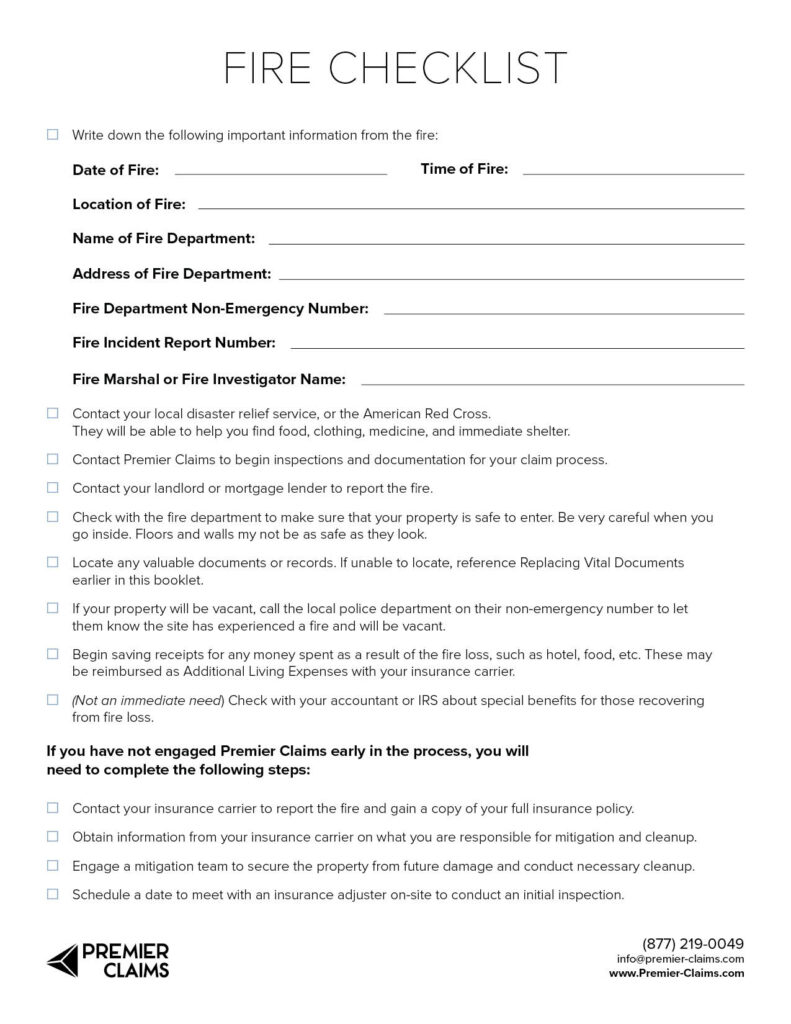Steps to Take After Property Damage
As you’re sitting at your dinner table, drinking your coffee, and eating your breakfast, you open up Facebook, and all you see are photos, videos, and news articles about the hail storm that swept through your neighborhood. You see that one of your friends posted a picture of a golf ball-sized hail near one of the office buildings you own. You realize there is a VERY good chance your building has damage. What do you do? Do you know how to navigate the claims process after property damage?
Here’s a comprehensive guide on what to do after property damage:
1. Mitigate Further Damage
First and foremost, prioritize your own safety and that of others. If the damage poses any immediate danger, take necessary steps to mitigate further impact or loss to your property. This could involve actions like boarding up windows, covering exposed areas, or shutting off utilities if necessary. Safety should always be the top priority.
2. Document the Damage
Capture thorough photographic and video evidence of all damage. This documentation is crucial as it serves as tangible proof of the extent of the damage for your insurance claim. Take pictures and videos from multiple angles, including close-up shots and wider views, to capture the full scope of the damage.
- Focus on Exterior Components: Inspect and document any damage to the roof, siding, windows, and surrounding landscape features such as foliage. Look for signs of dents, punctures, missing shingles or tiles, and debris accumulation.
- Immediate Assistance: If you cannot immediately document the damage yourself, contact our team promptly. We can dispatch someone to conduct a thorough damage assessment and gather the necessary information for your claim.
3. Contact Our Team for Guidance
Reach out to our team as soon as possible for professional assistance. Premier Claims specializes in navigating the complexities of insurance claims and can provide invaluable guidance from the outset.
- Assessment and Documentation: Our team will conduct an on-site inspection to gather comprehensive evidence of all recoverable damage under your insurance policy.
- Detailed Damage List: We’ll help you create a detailed list of all damage, impacted areas, and any structural issues. This includes a summary of the date, time, and severity of the event that caused the damage.
- Compile Records: Gather any relevant records related to your property, such as maintenance records, previous inspection reports, repair receipts, and prior photographs. These documents strengthen your claim by providing a history of the property’s condition.
4. Initiate the Claims Process
After reviewing the evidence and records, if we determine there is sufficient damage covered under your policy, we will initiate the claims process on your behalf.
- Notification to Insurance Carrier: We will notify your insurance carrier of the damage incurred and provide all necessary documentation to support your claim.
- Advocacy and Support: Throughout the claims process, our team will advocate for your best interests and work hard to get you fair compensation for the damage to the property. Dealing with property damage can be daunting, but taking proactive steps and partnering with our experienced team can make a significant difference in the outcome of your insurance claim. By promptly documenting the damage, compiling necessary records, and initiating the claims process with our guidance, you can lay a solid foundation for a smooth and successful resolution.
Contact us today to learn more about how we can assist you in navigating the insurance claims process and recovering from property damage effectively. Your peace of mind is our priority.

